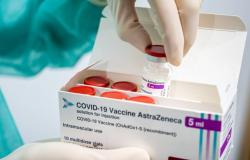Loading player
Two scientists have accused the Food and Agriculture Organization of the United Nations (FAO) of distorting the results of two studies they worked on, and of using a third inappropriately, to downplay the changes in feeding people can reduce global greenhouse gas emissions. More specifically, they argue that FAO underestimated how reducing meat consumption could help counteract the effects of climate change.
Paul Behrens, an associate professor at Leiden University in the Netherlands, and Matthew Hayek, a researcher at New York University, are two physicists who study the impact of various human activities on the environment. And they are both among the authors of the scientific studies cited by the FAO in a report on emissions caused by livestock farming for the production of meat and milk which was presented at the latest UN climate conference, COP28 in Dubai. In a letter dated April 9, they asked the organization to withdraw the report and correct it by “selecting sources more appropriately and rectifying methodological errors.”
Large-scale livestock farming is one of the activities that contributes most to greenhouse gas emissions. According to estimates by the UN Intergovernmental Panel on Climate Change (IPCC), the main international scientific body for assessing climate change, between 2010 and 2019 the agricultural sector, together with that of forestry management, was responsible for the 21 percent of global greenhouse gas emissions. Of this contribution, more than a fifth is due to the burping and flatulence of cattle, which contains methane, a potent greenhouse gas. About half, however, is attributable to changes in land use, such as deforestation, which is practiced in many parts of the world – mainly South America, Africa and Asia – to accommodate new pastures for livestock and grow vegetables to feed them.
– Read also: How much meat can the world eat?
The FAO report says that introducing improvements in livestock farming techniques and reducing food waste could “significantly” reduce emissions from livestock farming. And this also by increasing the production of animal-derived foods over the next 25 years, as is expected to be necessary to respond to the growth in demand for meat and dairy products – by 20 percent compared to 2020, globally (an increase in line with that of the world population).
The report also says that the reduction in agriculture-related greenhouse gas emissions that would be achieved if people adopted the diets recommended by state authorities, who generally in richer countries recommend reducing meat consumption, would be only 2-5 percent.
According to Behrens and Hayek, however, this latter assessment is incorrect and risks “giving a false impression that the potential mitigation of emissions through reduced meat consumption is limited, and that therefore increasing livestock numbers should be the priority”.
The study on which FAO bases the 2-5 percent estimate dates back to 2017 and Behrens is the first author. Together with a group of colleagues he estimated what the impact on global greenhouse gas emissions would be if the population in 37 different countries around the world (including Italy) changed their diet in order to follow the recommendations of the national authorities .
The study concluded that such a change in the richest countries would lead to a reduction in their emissions of between 13 and 24.8 percent. For countries with an intermediate average income, the study had instead found a smaller decrease, between 0.8 and 12.2 percent, while for the poorest ones it had estimated an increase in greenhouse gas emissions (by 12.4- 17 percent): the latter are countries in which a large part of the population has deficient diets in various respects, and an improvement in diets from a health point of view would require greater food consumption.
The first reason Behrens and Hayek say the FAO has misused this data is that since 2017 many countries (including populous China) have changed their dietary recommendations, significantly reducing the amount of meat recommended. So the same study, if done again today, would give different results: it is now dated.
But it wouldn’t be the only mistake for the two scientists. According to them, the FAO report “systematically underestimates” the potential of reducing meat consumption in terms of emissions reductions through a “series of methodological errors” listed in detail in their letter. Another would involve a 2021 study that Hayek participated in, from which the FAO report extracted an estimate of global emissions related to the food sector. According to the two scientists, the comparison between this data and those from the 2017 study was done incorrectly in the report and resulted in a significant underestimate of the potential climate change mitigation that could be achieved by reducing meat consumption.
Speaking with the Guardian, the first newspaper to cover the issue, Hayek did not say that he thought the errors were unintentional, but he stressed that none of what he and Behrens identified make any case for reducing meat consumption to the climate. The Guardianwhich deals frequently and extensively with climate and environmental problems, recalled that FAO, in addition to being an important source of data on the agricultural sector and one of the bodies whose reports are used by the IPCC and other United Nations organizations , is also an organization that has the objective of increasing food security in the world and therefore food production: for this reason it could be said to have a conflict of interest.
Behrens and Hayek contested the FAO study also because it would have based its conclusions on the possible effects of a reduction in meat consumption almost exclusively on the 2017 study, while generally in the scientific field all those available are considered to be well done and relevant. Among other possible research on the topic, it did not take into consideration the major report created in 2019 by the NGO EAT together with the authoritative scientific magazine Lancet to suggest how to improve people’s health and increase the sustainability of food production. The EAT reportLancet says that the optimal version of the “planetary health diet” involves not consuming red meat at all, as long as you get the right amount of protein from other sources.
An FAO spokesperson responded to the objections of Behrens and Hayek al Guardian:
As an organization that bases its work on science, FAO is fully committed to ensuring the accuracy and integrity of its scientific publications, especially given their significant implications for policy and public understanding. The report in question has undergone a rigorous review process, conducted both internally and externally following the peer review method (peer review) double-blind to ensure that the research met the highest standards of quality and accuracy, and that potential bias was minimized. FAO will investigate the points raised by the scholars and engage with them on a technical level.






